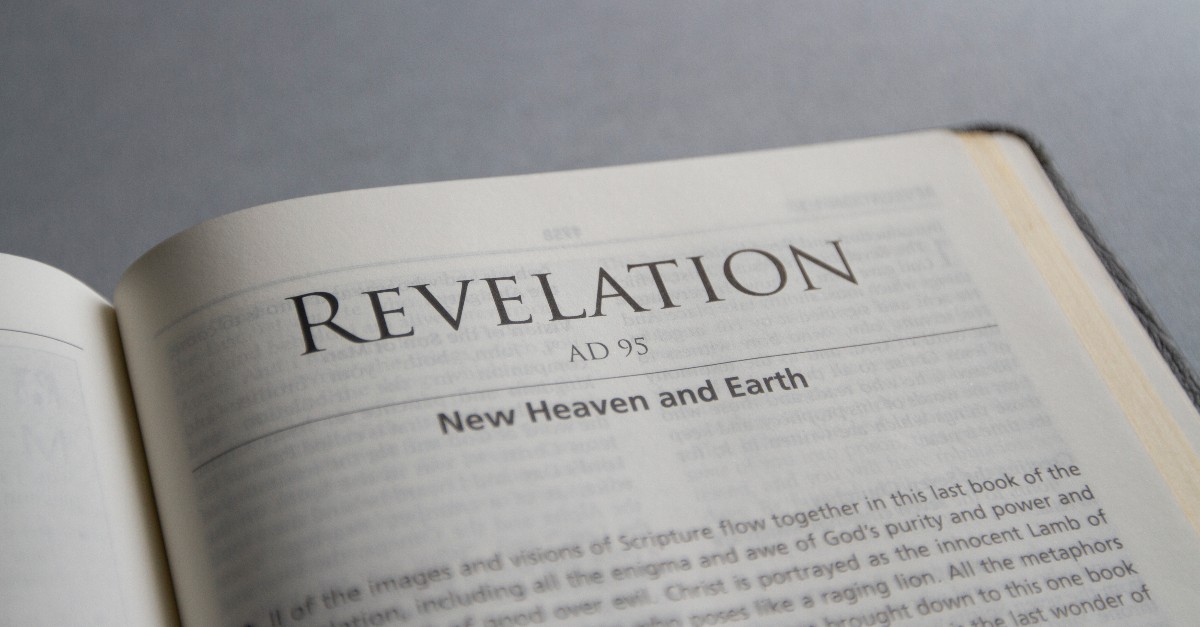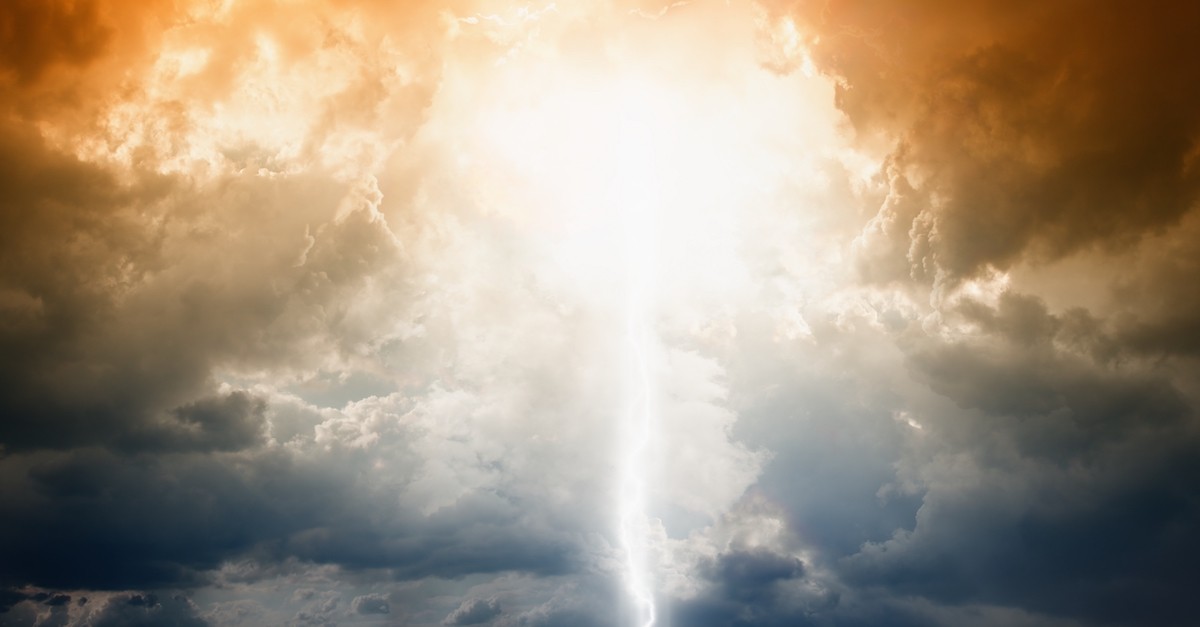
People don’t talk about Revelation much anymore.
A few decades ago, it seemed almost every church and pastor would teach on the end times. They had their theological stance, whether from a denomination or not, and many Christians would passionately argue their positions on the various elements of Revelation and the end times. At the extreme, some ministers would predict the coming destruction and give specific years. Of course, those years passed.
Today, we’ve gone to the opposite extreme. We hardly talk about the end times and Revelation at all. Various reasons exist for this. Revelation is a mixture of symbol and meaning about future events, so interpretations differ widely. In a more seeker-sensitive context, big churches find Revelation and the end times confusing or disturbing to people, so they stay away from the topic.
But Jesus found it central to talk about, giving a major discourse on his return and the end times in Matthew 24-25, with parables and direct teaching. As his followers, we should, too. We live today in the hope of tomorrow, anchoring us in faith. Jesus lovingly provides this in the Gospels and Revelation.
The seven trumpets in Revelation speak to the future judgment while also connecting with the Old Testament past. These trumpets can tell us something about the future and teach us how to live in the present.
Photo Credit: ©iStock/Getty Images Plus/Chinnapong

Where Are the 7 Trumpets in Revelation?
Revelation chapters 8-11 list and describe the seven trumpets. These trumpets are part of a more extensive vision Jesus gave the Apostle John while he was in Roman exile on the isle of Patmos for preaching the Gospel. The seven trumpets come after the opening of the seventh seal. After the trumpets, Revelation describes the seven bowls of wrath.
Each trumpet announces a judgment from God to the earth, and these declarations include a warning and a call to repentance. In Greek, the word for trumpet is salpinx, or “to sound a trumpet." The verb form is salpizo. The salpinx was the name for a straight, metallic trumpet used in Roman culture for signaling a battle, calling people to gather, or perhaps making public announcements. In Revelation, the salpinx does these, summoning people to observe the coming judgment and declaring the further advancement of the Kingdom of God.
The seven trumpets fall within the pattern of sevens in the book—seals, trumpets, and bowls. While this process reveals God’s justice against sin and oppression, and his mercy to his people, the sevens uncover the deeper spiritual battle between the Kingdom of Heaven and the Devil’s evil forces. When the trumpets sound, some sort of natural or supernatural disaster happens. These judgments each have a purpose, mirroring the plagues of Egypt in Exodus, a type of deliverance from an evil empire, in this case symbolized by Babylon. And instead of gathering to the Promised Land, God leads and protects his people, bringing them to the new heaven and earth reality.
Photo credit: ©Sparrowstock

What Does Each of the 7 Trumpets Signify?
In context, each of these judgments result from the people’s rejection of God and the sins which come from that willing rebellion.
The First Trumpet brings destruction of hail and fire on the earth, similar to one of the Egyptian plagues. A third of the earth, trees, and grass burn away (Revelation 8:7). This trumpet disrupts the natural world.
The Second Trumpet makes a great, burning mountain to fall into the sea, also connected to Exodus. This results in a third of the sea becoming blood. A third of sea life dies, and a third of the ships are destroyed (Revelation 8:8-9), causing dire problems with food and trade.
The Third Trumpet shows how a great star called Wormwood falls from heaven and poisons the rivers and springs. A host of people die from these poisoned waters (Revelation 8:10-11). A star could symbolize an angelic being of some sort.
The Fourth Trumpet affects the heavens. A third of the sun, moon, and stars go black and reduce light by a third during day and night (Revelation 8:12). This unnatural darkness also echoes an Egyptian plague, symbolizing a lessening of God’s light.
The Fifth Trumpet begins the first of three woes, a plague of evil locusts. Another star or angel falls from heaven and opens the abyss, releasing toxic smoke and these demonic beings. They torment the people for five whole months but don’t kill them.
The Sixth Trumpet brings the second woe, four angels unleashed from their bondage at the Euphrates River. They lead an army of 200 million soldiers on horse, and this army kills a third of humanity with fire, smoke, and sulfur (Revelation 9:13-21).
It is here that Revelation mentions how people refuse to repent, implying how God may have responded differently if individuals or nations had recognized their sin and rebellion against God. They did not. “The rest of mankind who were not killed by these plagues still did not repent of the work of their hands; they did not stop worshiping demons, and idols... Nor did they repent of their murders, their magic arts, their sexual immorality or their thefts.” Revelation clearly shows God’s judgment is just against such horrors, and people choosing not to repent.
Finally, the Seventh Trumpet (Revelation 11:15-19) comes. Voices in heaven shout and announce the coming of the Kingdom of God. “The kingdom of the world has become the kingdom of our Lord and of his Christ.” Here, the trumpet shows how God’s judgment makes way for Christ’s eternal reign. Jesus will rule in peace, justice, and love, ending the way of rebellion and oppression for God’s glory and the good of those who stay faithful to him.
Photo credit: ©GettyImages/Ig0rZh

What Do Trumpets Mean in the Bible?
The Bible includes trumpets from the earliest stories, and these instruments have various important roles. The most common Hebrew word for trumpet is shofar, a ram’s horn of the earliest days, and chatsotsrah, a silver trumpet mostly used for the Temple. If you’ve been in a church that likes to connect with ancient Judaism, you might have seen and heard someone sound the shofar.
In the Old Testament, the main use of trumpets would be to gather the people. God commands Moses to construct two silver trumpets and call Israel while directing the camp’s movements (Numbers 10). The leaders or priests would blow the trumpets, and then Israel came together to hear instruction before marching forward, usually when the people followed the pillar of fire or smoke.
Judges 7 shows how trumpets appear during wartime, a sign of victory to come. Gideon and his 300 men use trumpets to confuse the Midianite army before defeating them. Some generations before, Joshua had the Israelites walk around Jericho for seven days (based on God’s instruction), and on the seventh day, the priests blew trumpets. The walls promptly fell straight down (Joshua 6).
Trumpets also played a part in worship and festivals, often during the main holy days. Leviticus 23:24 declares the Feast of Trumpets, a day of rest, when the priests sound trumpets. This day begins the High Holy Days, leading to Yom Kippur, or the Day of Atonement. These trumpets call the people to worship and repentance. Israel would also sound trumpets during major celebrations like the dedication of Solomon’s Temple (2 Chronicles 5:12-14).
Moving to the prophetic books, trumpets become major alarms for the people, warning of coming judgment and calling to repentance. For example, Joel 2:1 says, “Blow the trumpet in Zion; sound the alarm on my holy hill.” This verse warns of the coming Day of the Lord, a time of judgment.
Trumpets carry over into the New Testament. 1 Thessalonians 4:16 and 1 Corinthians 15:52 talk about a trumpet sounding Christ’s return, the resurrection of the dead, and Christians receiving new, heavenly bodies.
Revelation’s 7 trumpets carry all these meanings, consistent with the whole of Scripture.
Photo Credit: © Getty Images/tomertu

What Can We Learn from the 7 Trumpets in Revelation?
The 7 trumpets in Revelation can be confusing and fantastical, sometimes difficult to distinguish between symbol and reality. Theologians for over a thousand years have debated these things. At the same time, we can see several important lessons from the 7 trumpets.
First, they show us how sin always requires judgment. Sin is disobedience to God, but it also hurts and perverts humanity. Therefore, God isn’t indifferent to evil. Through the Scripture, the Lord responds to sins of idolatry, injustice, violence, and sexual sin with firmness because they harm the creation he loves. The disastrous trumpets reveal these consequences, intentional acts of justice by a loving God meant to offer repentance and condemn sin. As believers, we must humble ourselves and take seriously the times God convicts us of our sin, understanding the severity of it. He gives grace to the humble, those who seek him and confess.
However, God doesn’t rush to judgment. The trumpets follow seven seals and are followed by seven bowls. Months pass between these “final” judgments, revealing a progression and process. God has shown his supernatural patience over thousands of years and does so again even during judgment. While all people and the earth deserve wrath, God limits his judgment (only a third of the earth, sea, sky, etc.). The Lord continually shows restraint and kindness, warning several times before destroying, always giving opportunity for repentance. Tragically, the people still rebel.
When we encounter consequences in our own lives from the sin we choose, we can also remember his patience and mercy. God’s mercy will triumph over any judgment if we repent and turn to him.
These trumpet judgments aren’t the end. They lead to a greater purpose, part of God’s plan to deal with corruption before bringing the perfect Kingdom with his Son, Jesus. The Father refines the earth, removing the sin, to prepare it for something far better. This teaches us how God’s plans are always redemptive. He doesn’t judge to be cruel but to restore. His love desires to make things right again. Revelation’s trumpets point to the day when Christ will reign and wipe away every tear. He will make things new.
Yes, God deals with sin out of his love to protect and make things right. But this gives us hope. The Father longs to be with us now and forever. He is leading us through trials and tribulations to a better day where all sorrows and pain cease, and we fully experience the complete and perfect world we long for in his presence.
Let us have this hope today, remaining faithful and seeing his loving hand of correction for our eternal good.
Peace.
Photo credit: ©GettyImages/Ig0rZh

Originally published Friday, 18 April 2025.
